A Deeper Divide
The mental toll of rising polarization on the Fork Peck Indian Reservation
Story by Kohl Wolfe. Photos by Marc Anthony Martinez
It was already a miserable day for Robert Manning. He’d just spent hours dealing with the ‘five things’ email mandate sent by the Department of Government Efficiency on Feb. 22, in which all government employees were required to report their five professional accomplishments of that week.
As the local chapter president of the National Federation of Federal Employees, Manning spent much of that day easing the unsettled federal workforce on the Fort Peck Reservation. At the time, a cluster of presidential executive orders were causing strife and confusion. They suggested big changes for federal employees, perhaps even layoffs.
On his way home, Manning needed to make one stop at the local auto parts store for brake pads for his son’s truck.
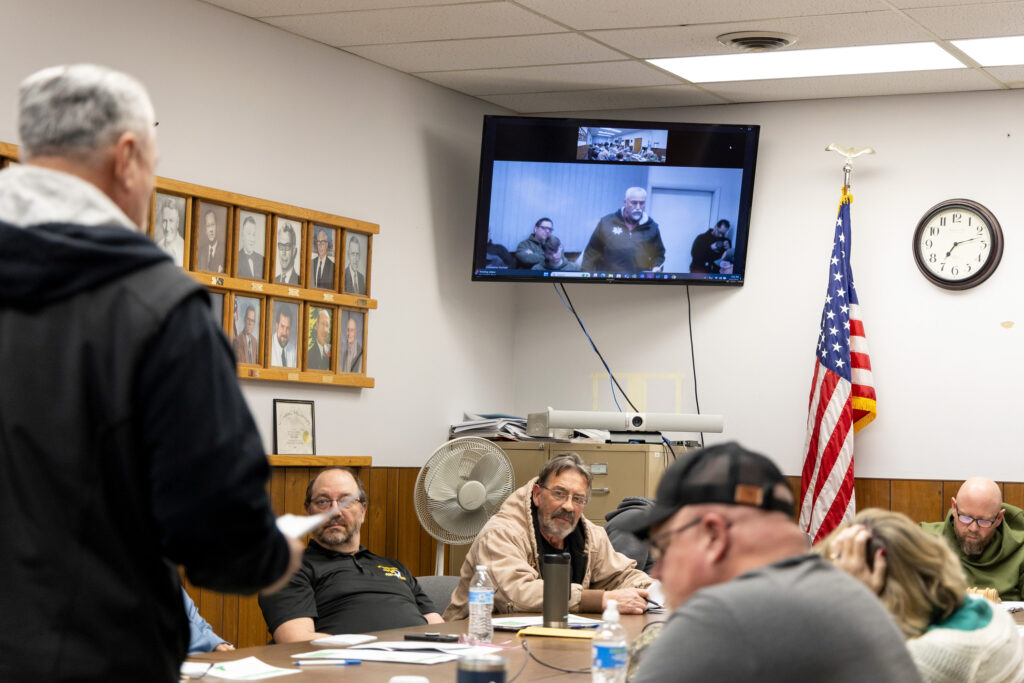
As Manning was leaving the store, he heard his name in a loud voice that echoed through the building. It was a White man who approached Manning. He flexed his arm in Manning’s face and said “MAGA Strong!”
The moment was quick. But it ate at Manning, he felt purposely targeted. He was haunted, so he decided to share his experience and confront the man.
It was March 3, about two weeks later. Manning stood at the end of a long table while the man, Ken Hentges, sat at the other end as a member of the city council.
The small room housed the meeting place for the Wolf Point City Council, which stood at full capacity for the monthly meeting. Those in attendance watched on as Manning read a poem and shared handouts, silently listening as his story grew more intense.
“I don’t think you fully understand what your words and your actions really did that day,” Manning told Hentges. “I don’t think you have the empathy to understand that, and it’s not going to be tolerated. It’s not ethical, and today, I’m asking for your resignation.”
Hentges, who quietly listened to Manning’s public comment, finally spoke.
“You literally just took it the wrong way,” Hentges said. “I didn’t mean anything offensive by it.”
A small argument immediately broke out. The councilman dismissed the event. Manning, his voice booming, equated the dismissal of his feelings to “what bullies do.” Then they were interrupted.
Wolf Point Mayor Chris Dschaak, slammed the table with his hand to quiet the room. There would be no screaming match in his chambers.
“There’s been a divide that goes beyond race, creed, color, religion, all of this,” Dschaak said. “Whether you’re a Republican, Democrat, Socialist, Communist, that’s on your personal time. I don’t know how we get back to decency. It seems like we’re slipping away from that more and more day-by-day.”
The divide that Dschaak described was much bigger than what could be felt in the council chambers that night. It was bigger than in the auto parts store on the day Manning spoke about. It’s a divide that permeates throughout the town of Wolf Point, the state of Montana, and the United States.
The first 100 days of Donald Trump’s second presidential term has stirred fears throughout Indian Country. Among the targets that the federal administration has focused, many directly touch tribal programs and communities. This includes federal job security attempts to eliminate Diversity, Equity and Inclusion programs in both the workplace and at schools, and potential cuts to health programs. This doesn’t include the rise in incidents like Manning’s, which have created extremely strenuous mental health stress.
Overall, more Americans reported feeling mental stress when it came to politics. In its 2024 study, “Stress in America,” the American Psychological Association reported that 77% of adults said the future of America was a significant source of stress. In addition, 69% of people said the presidential election was a source of significant stress, an increase from 2016 when 52% of people said the same.
Since President Trump’s 2016 victory, and especially since his re-election in 2024, incidents regarding political harassment and violence have heavily increased. According to a 2016 report published by the Southern Poverty Law Center, in the 10 days following the 2016 election, almost 900 reports of harassment were reported across the nation.
In many of the incidents, the harassers invoked Trump’s name directly. Like Manning’s, many others made ties to the ‘Make America Great Again’ movement.
Even without the extraneous circumstances created by the Trump administration, Indigenous communities face increased challenges regarding mental health compared to other demographics. According to the National Library of Medicine’s 2023 report titled “Resilience and Health in American Indians and Alaska Natives,” the disproportionate rates of chronic mental health issues can be directly tied to the effects of generational trauma and other historical instances of trauma.
“Historical trauma manifests in high incidence of future trauma exposure, intergenerational trauma, and is further compounded by experiences of racism and discrimination,” according to the report. “Historical trauma is also related to a constellation of psychological, biological, physiological and behavioral outcomes.”
Wolf Point, a town of around 2,500 people, sits in the middle of the Fort Peck Reservation, home to the Assiniboine and Sioux tribes. While a majority of the town’s population is Native American, there is a large number of non-Natives living in Wolf Point as well. While the town itself leaned slightly Democrat in 2024, there were a large number of votes cast for Donald Trump.
Enlarge
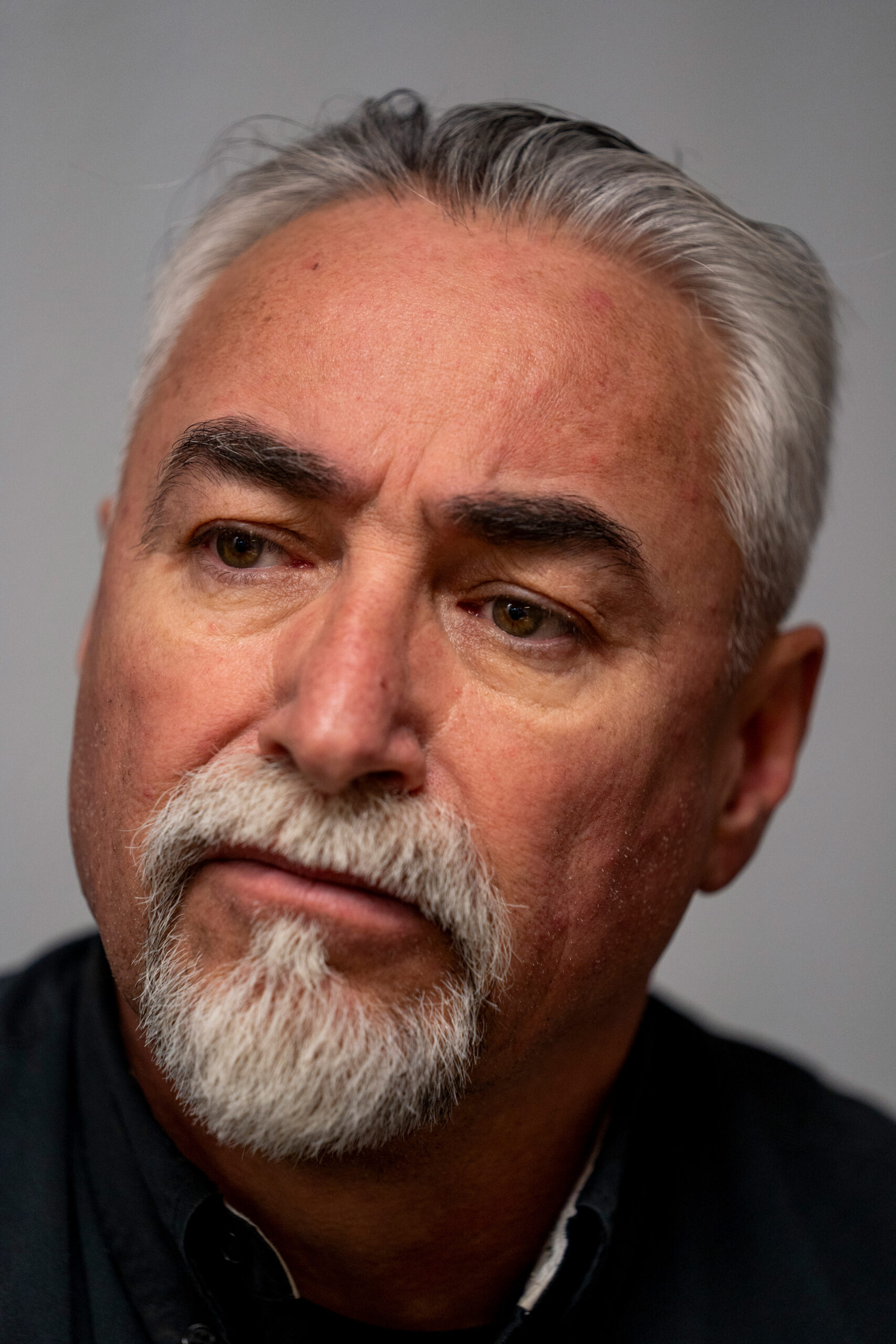
Career instability affecting mental health
Manning is employed by the Chief Redstone Health Clinic in Wolf Point, where he has enjoyed years of stability as a federal employee. However, since January, agencies like the newly created Department of Government Efficiency have put federal workers like Manning under a microscope.
According to court documents released by the Trump administration in March, more than 24,000 federal workers across 18 government agencies were laid off amid efforts by the government to cut back spending on ‘inefficient’ government agencies.
While healthcare workers in Fort Peck Indian Helath Service offices weren’t targeted in the February layoffs, concerns of job security still ran rampant. With the Department of Government Efficiency’s implementation of weekly performance assessments, many at Chief Redstone Health Clinic were left wondering about their futures.
“Many of my co-workers were crying, fearful for their careers,” Manning said. “One of my co-workers feared that she would be targeted first, because she had a Hispanic last name.”
As the local chapter president of the National Federation of Federal Employees, a nationwide labor union fighting for federal workers rights, many of those working with Manning look to him for support.

Many were so scared for their jobs that they declined to speak about their experiences due to fear of retaliation.
“These executive orders are creating a hostile work environment,” Manning said. “People are scared and intimidated by Trump and his agenda. It’s been hell for us federal workers just trying to live.”
On March 27, the Health and Human Services Department announced a new round of more than 10,000 layoffs. While IHS wasn’t one of the agencies targeted, Manning said that many within the nationwide union would be affected.
Manning is also concerned with the treatment of Native workers as the Trump administration looks to cut back Diversity, Equity, and Inclusion efforts within the government.
Montana Democratic Party Treasurer Lance FourStar, an enrolled citizen of the Assiniboine Nation on the Fort Peck reservation, is all too familiar with the concerns that Manning expressed.
Serving as the director of the Montana American Indian Caucus, FourStar works with Native lawmakers within the state legislature, drafting bills that reflect the interests of the state’s Indigenous population.
According to FourStar, the caucus was a quick target for representatives at the national level, with several lawmakers identifying it as a Diversity, Equity and Inclusion entity that touted the ‘woke’ agenda.
In FourStar’s mind, the labeling of the Montana American Indian Caucus and other such organizations as ‘woke’ represents a greater issue within the United States.
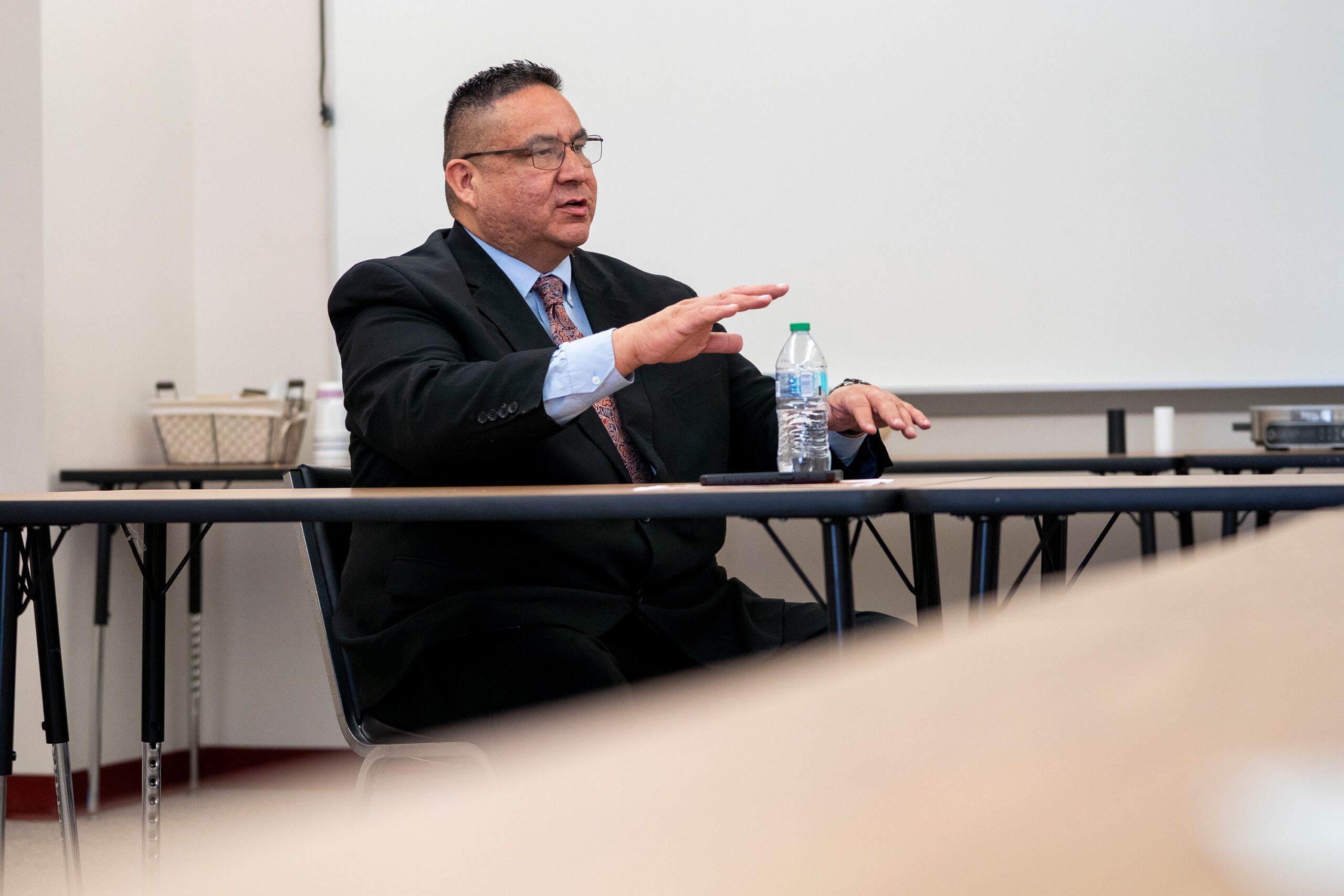
“There’s a fear tactic that’s happening in our nation, and it trickles down to the state legislature, and locally as well,” FourStar said. “I know that a lot of people are watching the news and seeing the conversations that people are having. People are being polarized.”
FourStar’s concerns aren’t unfounded. According to a 2022 Pew Research Center report on growing political polarization in America, there is a widespread belief among those who identify as either Republican or Democrat that the opposing party’s policy is harmful to the country, with 78% of Republicans and 68% of Democrats holding these beliefs.
FourStar is a sitting member of the Wolf Point City Council. He was in attendance for Manning’s public comment. FourStar is no stranger to the harassment that Manning said he felt that day.
During the 2024 election season, FourStar used social media platforms like Facebook while campaigning for a spot in the Montana House of Representatives.
While looking through a Trump-supporting family member’s Facebook page, he came to a realization.
“I recognize many of these people, but I have no idea what their views are,” FourStar said. “We live in the same community, but unless I go to their business or see them at a game, I’m not going to have an interaction with them.”
Wanting to build a bridge and connect with those he usually wouldn’t interact with, FourStar decided to begin adding people he believed held political opinions that differed from his own.
Within minutes, he regretted the decision.
“Right away, a community member started attacking me,” FourStar said. “He was calling me these names because I’m a Democratic candidate and I’m the treasurer for the Montana Democratic Party.”
As a public member of the Democratic Party, FourStar knew that online harassment was a possibility. This wasn’t his first experience with trolling online. Usually, he wouldn’t think anything of it, and the messages would usually stop after one or two comments.
When the interaction turned more threatening, FourStar understood that this was unlike anything he’d experienced before.
“He said he was going to do everything he could to make sure that I lost everything,” FourStar said. “He would make sure that I’d be left on the corner drunk, asking for spare change.”
FourStar admits he struggled with alcoholism for almost three decades. He now holds his five years of sobriety very dear. He knew what it was like to be on the streets with nothing, and it’s something he hopes to never experience again.
After more messages threatening FourStar and his family, he filed a report with the Roosevelt County Sheriff’s Office, and the messages stopped.
FourStar has never publicly spoken about his experience until now. By doing so, he hopes to shine a light on not only his experience and ensure that it isn’t normalized in an increasingly polarized society.
“The best thing I can do is take that experience and try to do something proactive with it,” FourStar said. “I can communicate to the public that this behavior is happening because of candidates and campaigns like Donald Trump’s. They make it okay for people to do that, and it’s not okay.”
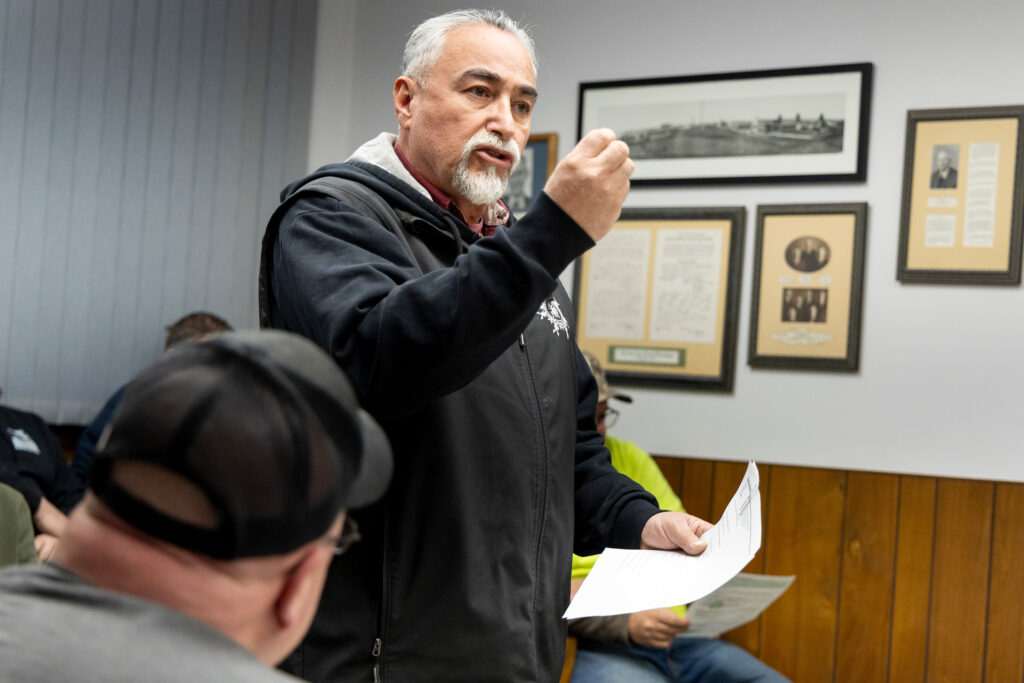
Finding safe spaces
Once again, Robert Manning stood at the end of a long table, recounting the night he said he was taunted by Hentges. This time, he was far more calm. The energy in this room was far less intense compared to the previous night at the city council meeting.
There’s no large audience to hear his words. Besides his wife, Carrie Manning, the only people that sat around the table are co-workers of Carrie’s, eager to listen.
After recounting the story yet again, he sat down as the group digested his words. The silence was only broken by the sound of dust being brushed away from Manning’s work uniform, as Carrie jokingly scolded him about his messy appearance.
“Look at how dirty your shirt is,” Carrie laughed, wiping Manning’s shoulders. “You can’t be messy when you’re getting your picture taken.”
“I had no time to change before I came here,” Manning responded. “I had to come straight from work.”
For almost two-and-a-half years, Manning has come to this building to get away. Opened in 2023 with the help of a grant through the Spotted Bull Recovery Center, the Safe Place acts as both a functioning center for recovering addicts and as Manning’s quiet place.
A licensed addiction counselor, Carrie Manning spearheaded the operation, as well as the creation of Celebrate Recovery, a weekly meeting where sober members of the community gather to acknowledge their shared struggles.
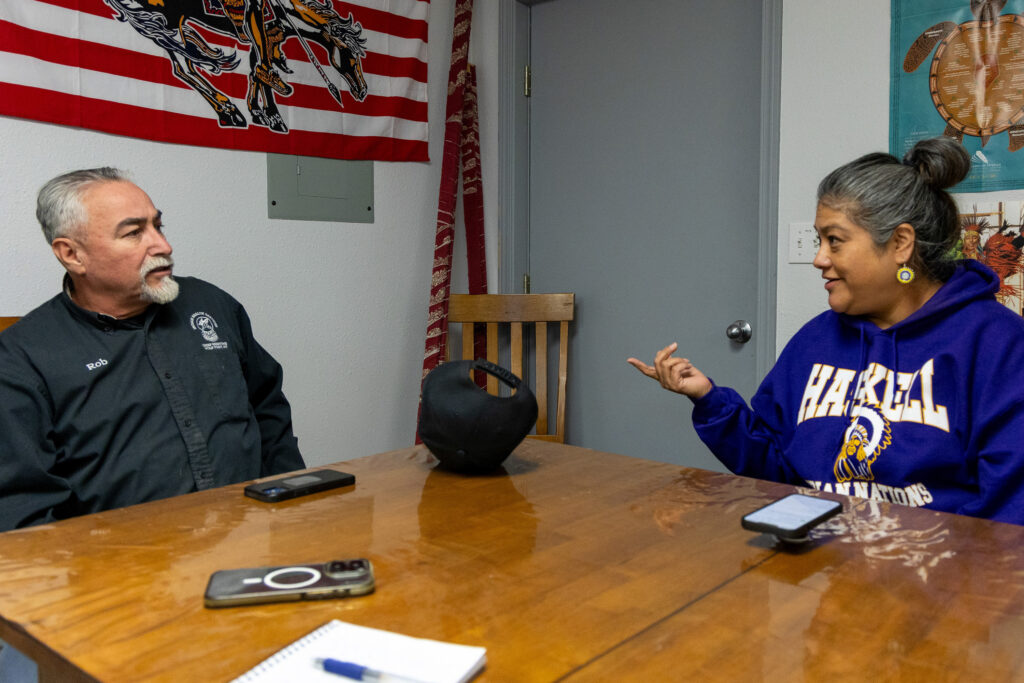
In the days following his confrontation with Hentges, the city council member, Manning experienced a barrage of emails, letters, and ultimatums that left him in a state of panic. So much so, that he now doubts his own memory of the event.
The owners of Wolf City Auto, a NAPA franchise, the store in which the alleged harassment occurred, contacted Manning through a lawyer, challenged Manning’s story and provided a video of the incident.
During the city council meeting, Manning recalled the councilman raising his arm with the palm of his hand facing forward, which he saw as a Nazi salute. While there is clear audio of Manning’s name being called out as well as the ‘MAGA Strong’ gesture being visible, there is no footage of a Nazi salute.
The owners of Wolf City Auto were not named during Manning’s public comment, but the letter attached detailed that the store and its owners felt that they’d been subjected to unfair and unwanted attention as a result.
In a post shared to Facebook, one of the owners of Wolf City Auto shared the video and, in a lengthy comment, dismissed the event as a “simple and almost friendly interaction” that was knowingly exaggerated by Manning.
“For Rob to say that he won’t come into our store because of this incident is silly,” the post read. “I post now because it was a false accusation that can cause serious damage to our business and livelihood. Ruining our business reputation and questioning our integrity all so you can play the victim is where I have to draw the line.”
In a statement released publicly, Manning clarified his comments.
“I did not call the business owners Nazi’s, and I sincerely hope that no one took my words that way,” the statement said. “If my statement caused any misunderstanding or hurt, I deeply regret that.”
While Manning believed that statement would be enough to satisfy the legal issues, something still ate at him; the events of the video still didn’t fully match what he remembered. He watched it so many times.
“According to that video, I’m wrong,” Manning said. “God help me, is this dementia? I’m worried. My wife is worried. My mind still can’t believe that video.”
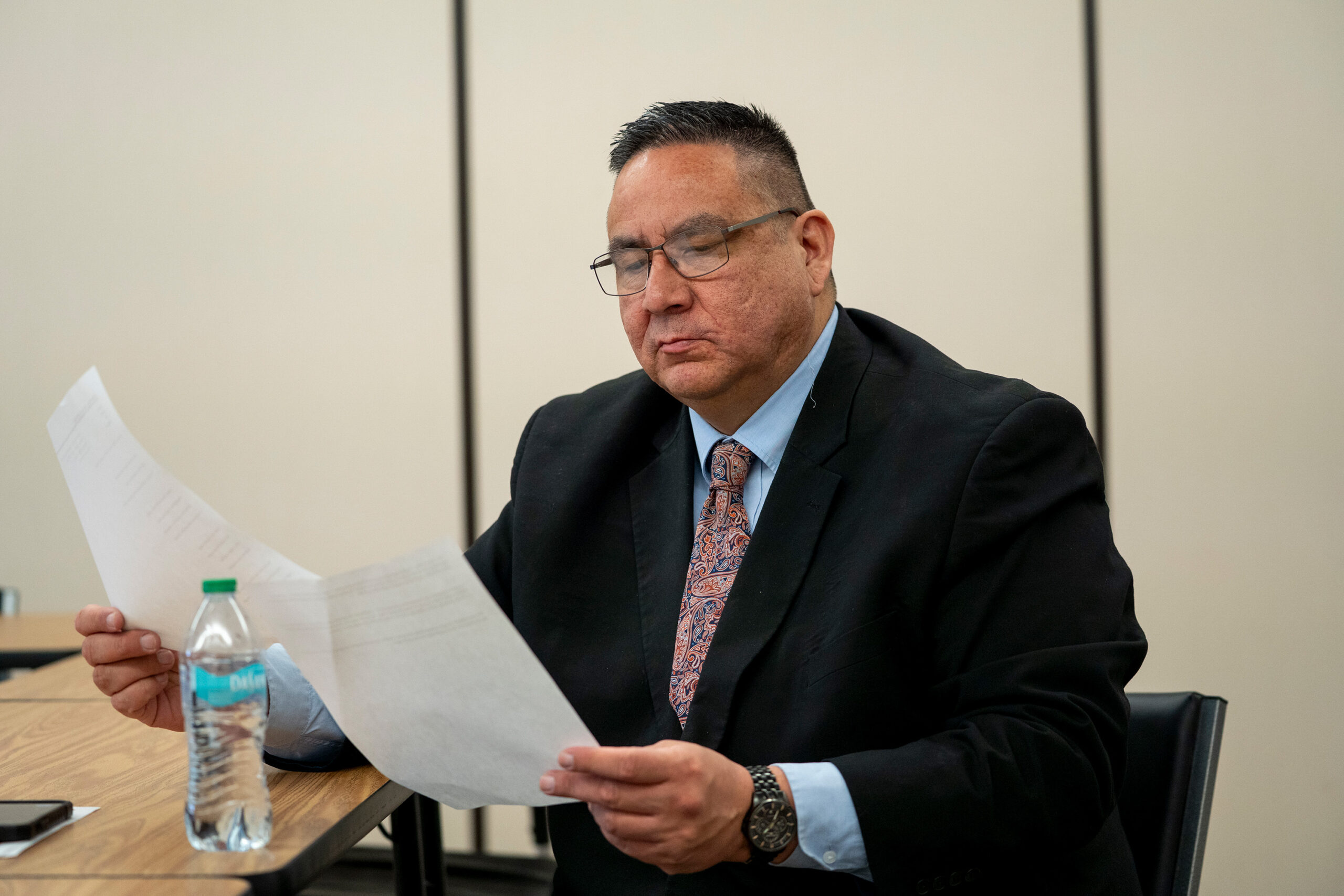
Social media attention
The attention from the Facebook posts were widespread throughout Wolf Point. Many comments accused Manning of fabricating the story, others called into question his position as the union president, and whether or not he could be trusted in the role.
Hentges however has stayed silent. No lawyer messages, no public addresses, not even a social media post. Even during the city council meeting, no indication was given that he denied the event.
For Manning, the moment that he hoped would spark a wider conversation about the state of things in Wolf Point turned against him in a way he could see coming.
“I knew I was going to become a target,” Manning said. “Being the union president, I already am. This just made the target that much bigger. I’m praying I don’t lose everything for coming forward and speaking about what’s happening here.”
Even with the threats of legal trouble and questions about his memory of events, Manning said he wouldn’t go back in time to avoid the city council meeting. Even if the events he remembered didn’t fully match reality, he knew what he felt was real.
“I did not want to hear my name called out and then be flexed on,” Manning said. “I did not want to be told ‘MAGA Strong.’ I still believe that’s not normal behavior and should have been brought to the council’s attention.”
Even after a week as bad as Manning’s, there’s always light at the end of the tunnel. On March 22, five days after the city council meeting, the Manning’s were able to leave Wolf Point behind for a weekend.
After all, they couldn’t miss walking their daughter down the aisle.
“This is the thing we’ve talked about, the things you have to look forward to,” Manning said. “There are plenty of good things happening in this world too.”
***
A SPECIAL PROJECT BY THE UNIVERSITY OF MONTANA SCHOOL OF JOURNALISM
ADDITIONAL FUNDING SUPPORT FROM THE GREATER MONTANA FOUNDATION
READ MORE:
Previous
A complex white picket fence
Next
Thriving together

